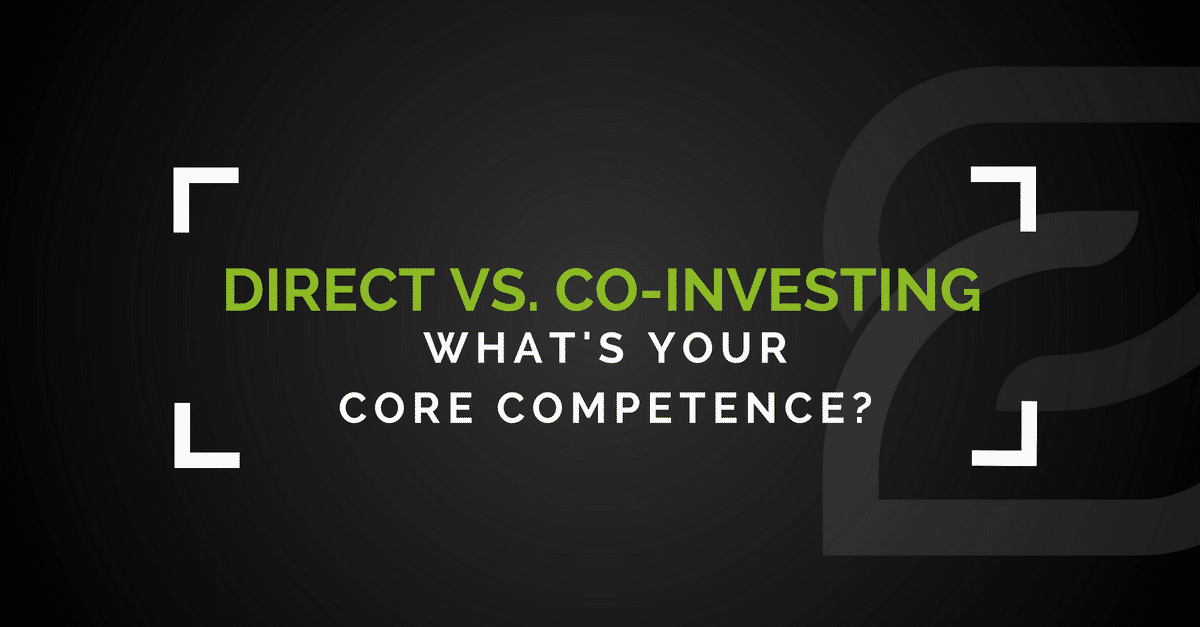Direct Investing Vs. Co-Investing - What's Your Core Competency?

There's a great incentive for Limited Partners (investors) to do direct investing or co-investing with their General Partners (fund managers), especially in the middle market or growth capital stage.
No Fee. No Carry.
(Reminds me of the Bob Marley song - No Women, No Cry).
The risks are aplenty in direct investing. Unlike when you invest in a fund with a fairly diversified portfolio where you can smoothen out the risks and rewards - direct investing means you'll be involved in the operations of the company and that includes its success or bankruptcy.
And one bad apple in a direct investment can be a living nightmare for investors.
Taking a direct stake in a target company means that the limited partner will also have to invest their own resources to monitoring and managing it - the question is not just whether they have the expertise to do so, but whether they have a system for due-diligence, legal, accounting and compliance as well as portfolio acquisition monitoring.
A large enough stake, and they could also be sitting tight with a board seat that they don't really want and having to explain to auditors why they shouldn't consolidate their accounts with their 'subsidiary'.
The level of expertise and effort is totally different for direct investing vis-a-vis fund-of-fund or fund investing and that's what many investors fail to see.
For instance, if the investment is not fully subscribed by a single investor, the deal team will face the risk of the deal falling apart and could end up catering to requirements of multiple investors (who have no strong interest). This will push the team to managing many moving parts just to syndicate the investment. With a fund, you can simply draw down on the commitments.
There's a famous saying,
When you buy a dog to bark... don't do the barking for it.
Sometimes, it's just better to delegate to the general partner to act as your guide and do the work for you. Time and effort are two things that cannot be replaced and smart investors know the value of theirs. It's like outsourcing. Think of it as a strategic partnership, with sharing of knowledge and information.
Or why not have the best of both worlds, invest through the general partners' fund with the option to co-invest directly when the time comes. This way, as an investor you'll feel comfortable that the general partner is incentivized to make the deal work and at the same time you save on management fees and carry. The general partner will feel more confident of negotiating a close thanks to your financial backing and thus control more of the company with your help.
As the investment starts to mature, you'll see which ones get larger and because of your direct stake - you'll be in a better position to increase your stake or "pyramid" into that investment before the big payday (and sometimes on a cheaper basis), unlike investing through a fund, which may have a cap of 10%-25% in each investment.
If you do have the right advisors, or the right team in place - you could add more than just money to the investment - it could be your contacts, your expertise or your ability to introduce new clients or customers. This is where the magic happens.
Setting up a in-house team is expensive, unless it's your core competence - you shouldn't be thinking about this. Having expertise in every industry is near to impossible - as Warren Buffet would say, don't invest in something you don't understand. That's pure investing wisdom.
Even if you could setup an in-house team, what would the incentive system be like? Would you have carried interest, like many of the general partners do? What would motivate your team to exit at the best possible price? How do you retain that team for very long and what sort of talent would you attract?
CK Prahlad got it right when he put forward the idea of Core Competence. Watch the video below...

Member discussion